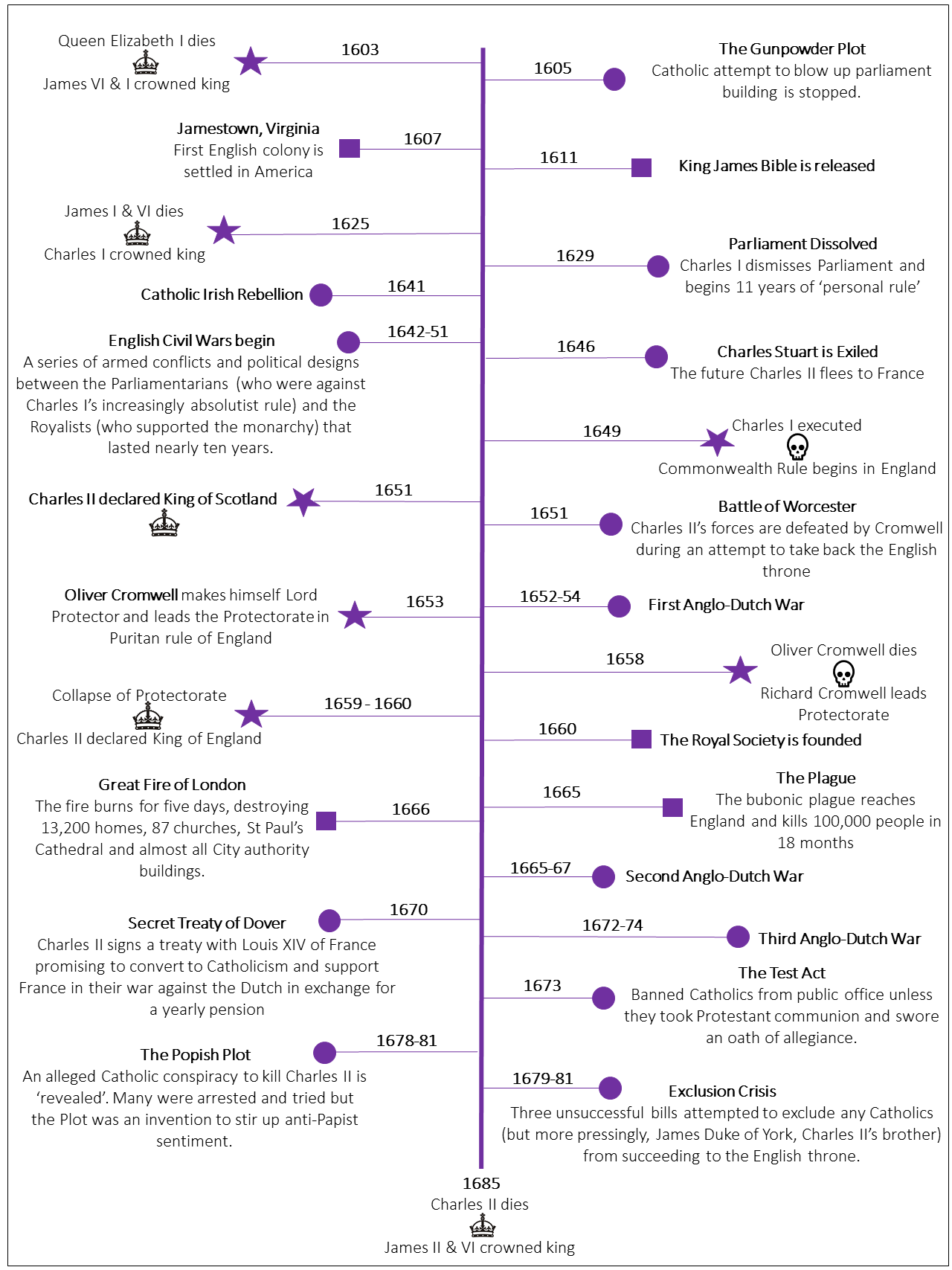The 17th Century: A Brief Social History
Timeline
Check out the timeline below to see some events of the seventeenth century (up to Charles II’s death).
The seventeenth century was one of the most turbulent periods in English history, socially, culturally, and for the monarchy. Traditions and norms were turned upside down as the pendulum swung back and forth between periods of war and peace, austerity and exuberance, and religious tolerance and prejudice.
The English Civil Wars, which saw the supporters of Parliament challenge Charles I and his Royalist followers, created political and social upheaval. This culminated in the execution of Charles I for Treason Against England. His son and heir, Charles, had already fled into exile on the continent. The monarchy was abolished, and Britain was ruled by Parliament.
The effective ruler, Oliver Cromwell, was a staunch Puritan, who wanted to bring a religious and moral reformation to the country. Playhouses were closed. There were strict curfews on taverns. Adultery was made into a capital crime. And Christmas was cancelled because it was considered a lewd pagan festival!
Eventually Britain grew tired of this Puritan rule and many wanted to see the monarchy re-established. After Cromwell died, and his son Richard failed miserably at ruling, the Protectorate was dissolved, and in 1660 Charles II was claimed King, seeing in The Restoration. The is the term used to mark the re-establishment of the monarchy in Britain and often includes the entirety of Charles II’s reign, which ran from 1661 - 1685.
When Charles returned to England and the monarchy was restored, it created unprecedented social changes. London became the new fashionable hub for the upper classes. Theatres were re-opened with women performing on the stage for the first time. The king and his courtiers brushed shoulders with commoners in public. Coffeehouses were bustling with men and women of all classes. Luxurious palaces were host to raucous parties, gambling and masquerade balls. The austere puritan rule of the Interregnum, was quickly overshadowed by the Merry Monarch, who enjoyed pleasure, entertainment and sex above all else.

